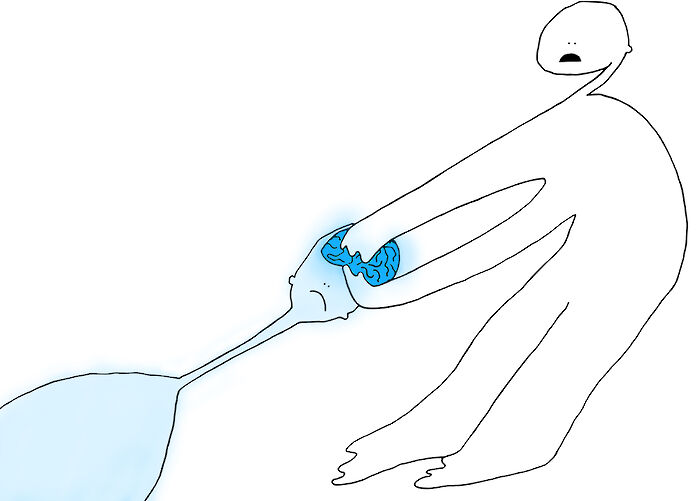The pitfalls of perfectionism
Realising that perfectionism could be a double-edged sword, Eva Schalbroeck set out to reduce the impact it held over her life

Perfectionism is still considered a desirable personality trait, especially in academia. However, always striving for the best is a double-edged sword. Although it makes me live life fully and accomplish academic success, it also leaves me constantly dissatisfied. Feeling recently how the downsides of my perfectionism outweighed the benefits prompted me to re-think it.
As an undergraduate, I was an exemplary, diligent, over-achieving student, with high standards and results. Now, my meticulous history PhD research almost feels like living in the past. Yet, perfectionism is not a one-way ticket to brilliant exam results or research. Seeking to explain something so well, I make it needlessly difficult; obsessing over details, I forget the bigger picture. Subconsciously, I also realise there is a limit to always getting better results or more awards, but the academic world caters to the perfectionist mind.
Perfectionism is still considered a desirable personality trait, especially in academia.
Well-intended encouragement to do more and better and healthy competition with peers during my undergraduate degree fed my perfectionism. But once the deadline was made and the exam done, the pressure receded. During my PhD, I have felt how flexible hours, vague objectives and ruthlessly competitive programmes pushed me towards more applications, more awards and more publications. Yet despite the academic pressure, I remain the “main culprit”: I am my own harshest critic.
Nearing the end of my PhD, I began to feel the downsides of my perfectionism more than its positives. I was overworked, but never happy with the result and so kept working. I overplanned other activities, but never really relaxed and eventually abandoned them all together. Physically and mentally exhausted, I ticked off every characteristic from the list of “neurotic perfectionism”. I was perpetually unsatisfied, beating myself up over tiny mistakes and self-loathing.
I was overworked, but never happy with the result and so kept working.
Even in non-academic activities, I always set soaring standards and eventually fall short of them. On a good day, I juggle everything on my to do-list. Meanwhile, I am always available – the perfect friend and daughter. On a bad day, simple decisions completely paralyse me. Then, I waste hours failing to decide what is “best” out of endless options. Perfectionism also drains my spontaneity and makes me do things mindlessly. It turns me into a slave to impossible standards, rather someone able to trust her gut-feeling. It also leaves me convinced that everyone else is succeeding, while I am just a lazy and incompetent slacker.
Feeling the negatives so acutely not only made me unhappy, but also desperate. My default way of living and working was clearly bankrupt. An alternative was unfathomable. The time, however, felt ripe to finally kick my perfectionist habit. Initially, I tried to “cure” my perfectionism, by “turning it off”. I desperately tried, but just could not do it. I – oh the irony - became perfectionist about not being perfectionist, inevitably failed and fell into old habits. While aware that “perfect” is unattainable, the addictive short-term satisfaction of working towards always more and better kept me hooked. And so, I walked into the perfectionist trap again with open eyes, despite intuitively knowing better.
Pruning my perfectionism is a constant battle of realising “Oops, I did it again”, stopping myself and resetting.
With the help of a psychologist, I learned that getting rid of my perfectionism is not possible; it is part of my personality. It is also not desirable; I would throw out the baby with the bathwater; the good with the bad. The solution is to manage my perfectionism, so that it brings out the best in me, without digressing into paralysing obsession or a constant comparing game never to be won.
I keep track of my progress in a diary. It reads that recently I spontaneously said yes to some much-needed fun, rather than planning it. I left work “in progress” at the day’s end, rather than continuing until I thought it was “perfect”. Not writing in my diary every day is probably a sign I am not doing too bad... But pruning my perfectionism is a constant battle of realising “Oops, I did it again”, stopping myself and resetting.
Although writing this has been cathartic, it is however not purely self-serving. I hope that those who recognise elements of themselves in it, realise that they are not alone and that perfectionism is not the holy grail. I also hope to have shown that you can make perfectionism work for you, rather than letting it control you. Trust me, life is far more fun and rewarding that way.
 News / Government announces £400m investment package for Cambridge25 October 2025
News / Government announces £400m investment package for Cambridge25 October 2025 Arts / Why is everybody naked?24 October 2025
Arts / Why is everybody naked?24 October 2025 News / Cambridge don appointed Reform adviser23 October 2025
News / Cambridge don appointed Reform adviser23 October 2025 News / Climate and pro-Palestine activists protest at engineering careers fair25 October 2025
News / Climate and pro-Palestine activists protest at engineering careers fair25 October 2025 Comment / On overcoming the freshers’ curse22 October 2025
Comment / On overcoming the freshers’ curse22 October 2025










